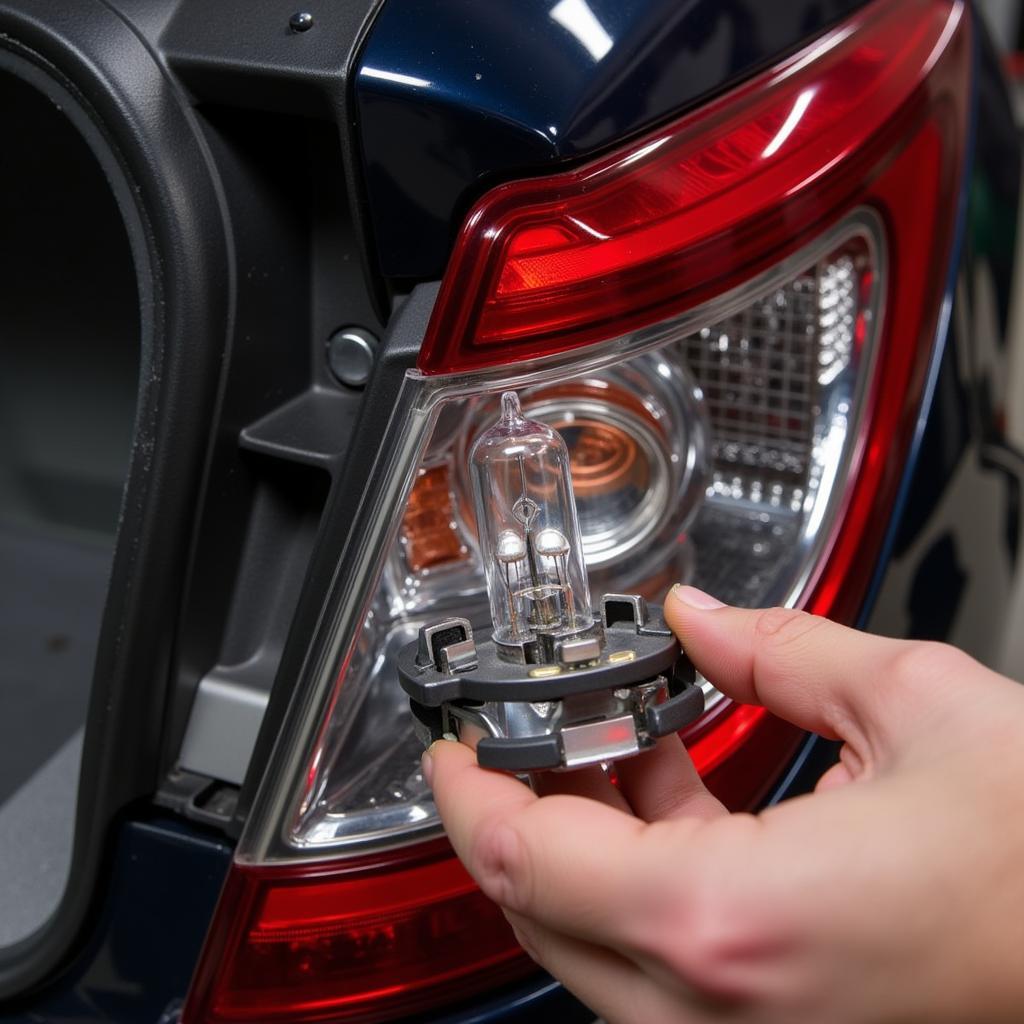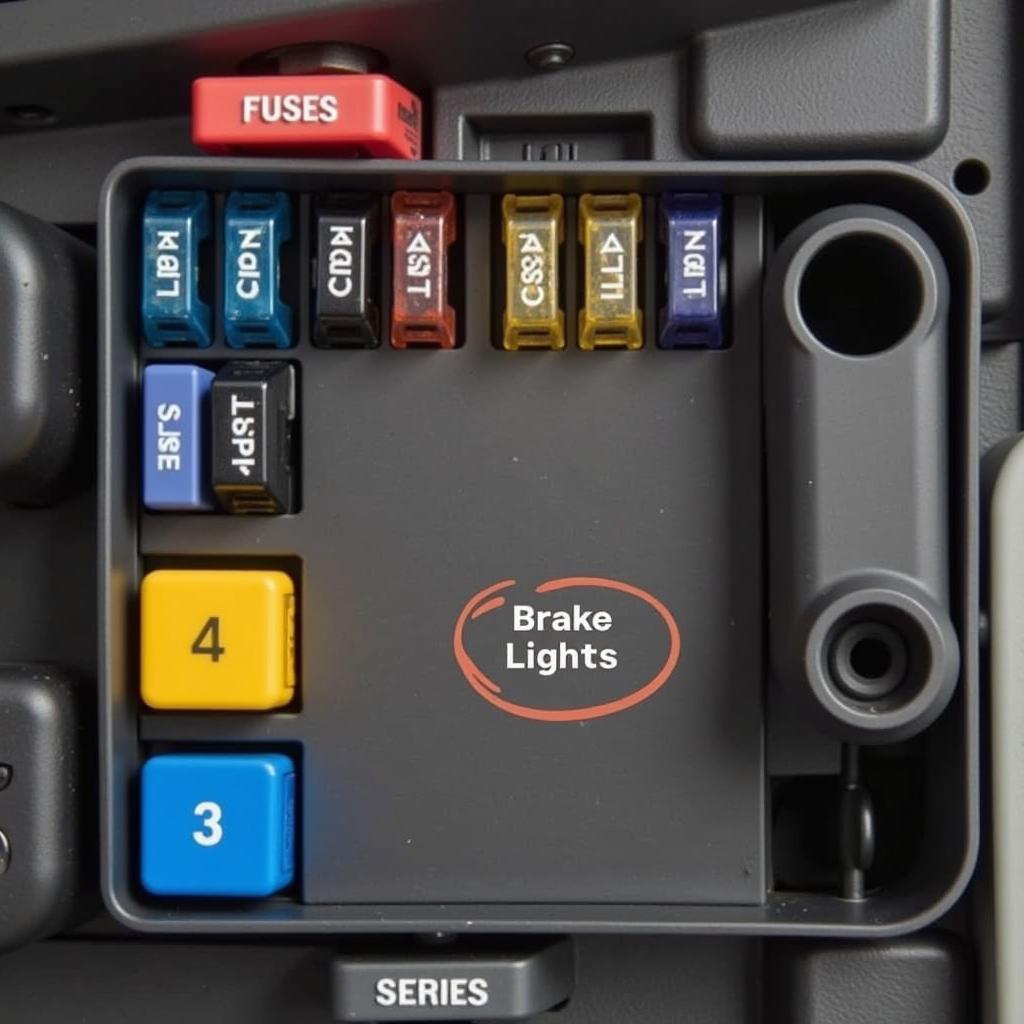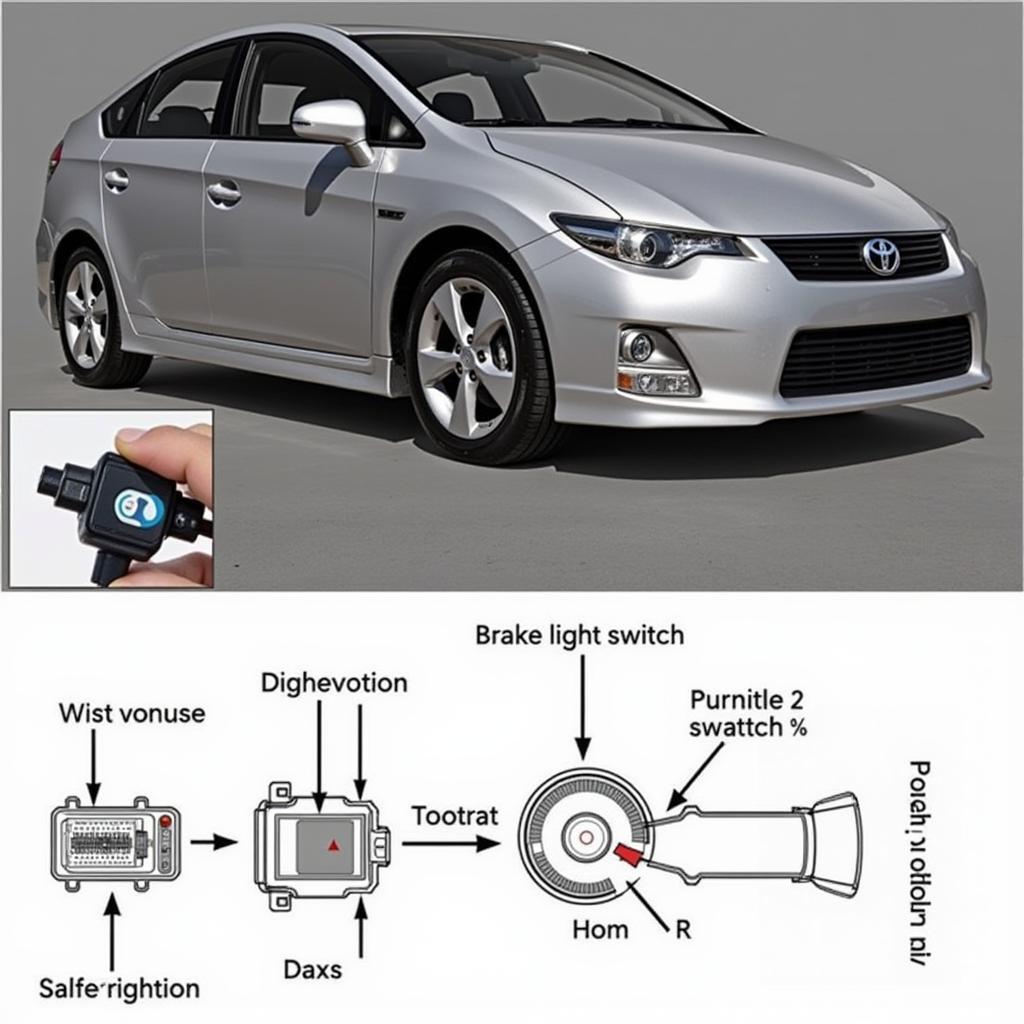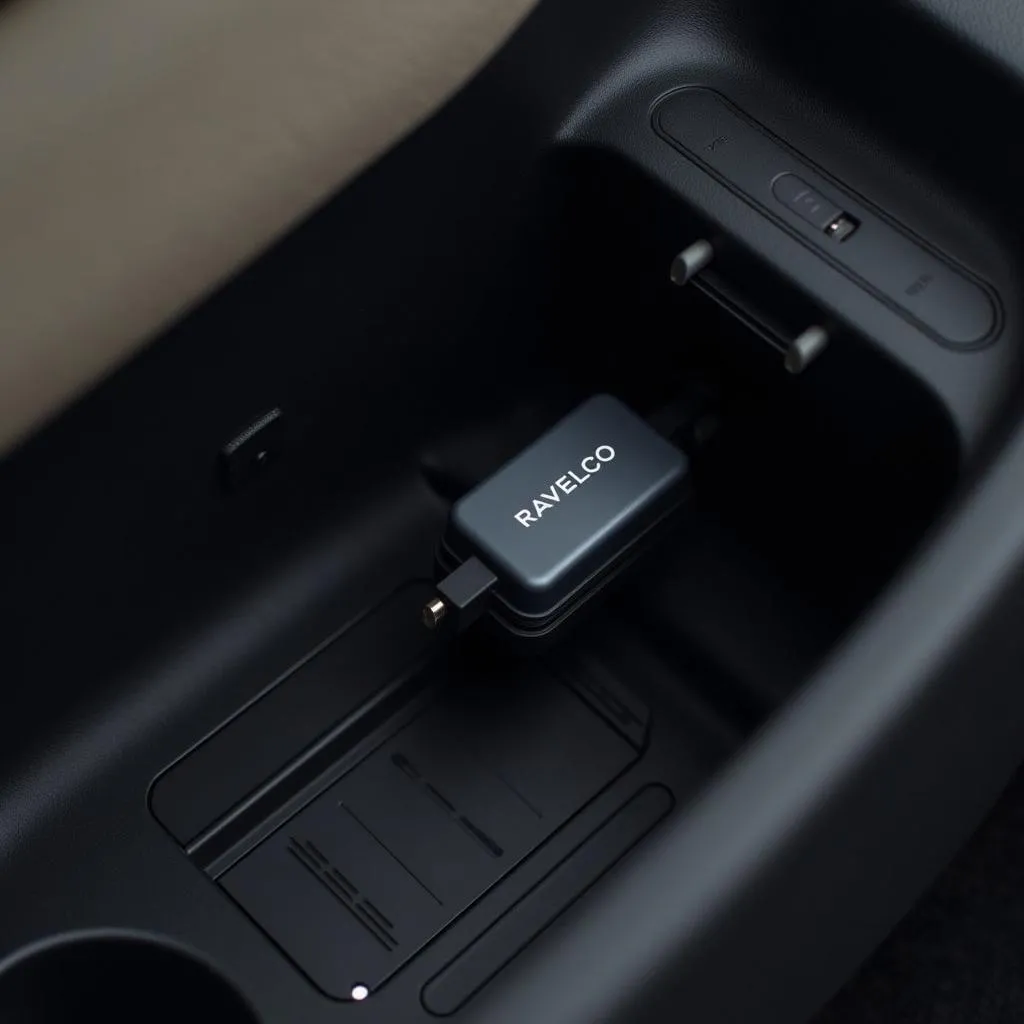A “Prius brake light warning” usually means that one or more of your brake lights aren’t working. This is a serious safety hazard, as other drivers rely on your brake lights to know when you’re slowing down or stopping.
This comprehensive guide will walk you through the common causes of a Prius brake light warning and how to troubleshoot and fix the issue.
Common Causes of a Prius Brake Light Warning
Several factors can trigger the brake light warning on your Toyota Prius. Here are the most common culprits:
- Burned-out bulb: Just like any other car, the brake light bulbs in your Prius have a limited lifespan and can burn out over time.
- Blown fuse: A blown fuse in the brake light circuit can cause all of your brake lights to stop working.
- Faulty brake light switch: The brake light switch is responsible for sending a signal to the brake lights when you press the brake pedal. If the switch fails, your brake lights may stay on constantly or not turn on at all.
- Wiring issues: Damaged or corroded wiring in the brake light circuit can prevent the lights from receiving power.
- Faulty combination meter assembly: In some cases, a malfunctioning combination meter assembly (the instrument cluster) can trigger a false brake light warning.
 Toyota Prius brake light bulb
Toyota Prius brake light bulb
Diagnosing the Problem
Before you start replacing parts, it’s crucial to diagnose the cause of the problem accurately. Here’s a step-by-step guide:
- Check the brake lights: Ask someone to press the brake pedal while you inspect all three brake lights (left, right, and center).
- Inspect the brake light bulbs: If one or more lights are out, inspect the corresponding bulb for signs of burning or damage.
- Check the brake light fuse: Refer to your owner’s manual to locate the brake light fuse. Inspect the fuse for signs of burning or breakage.
- Test the brake light switch: If the bulbs and fuse are okay, the brake light switch might be faulty. You can test the switch with a multimeter or by temporarily bypassing it. However, this task is best left to a qualified mechanic.
 Toyota Prius brake light fuse box
Toyota Prius brake light fuse box
Fixing the Prius Brake Light Warning
Once you’ve identified the cause of the brake light warning, you can take steps to fix it:
- Replacing a burned-out bulb: This is a simple task that most car owners can do themselves. Refer to your owner’s manual for the correct bulb type and replacement procedure.
- Replacing a blown fuse: This is another easy fix. Make sure to use a fuse with the correct amperage rating, as indicated in your owner’s manual.
- Fixing wiring issues: If you discover damaged or corroded wiring, you’ll need to repair or replace the affected sections. This task is best left to a qualified mechanic.
- Replacing the brake light switch: Replacing the brake light switch is a relatively straightforward job, but it may require some mechanical skill. If you’re not comfortable working on your car, it’s best to take it to a mechanic.
- Addressing combination meter issues: If you suspect the combination meter is faulty, you’ll need to take your car to a Toyota dealer or a specialized repair shop for diagnosis and repair.
 Toyota Prius brake light switch location
Toyota Prius brake light switch location
“The brake light switch is a critical safety component,” says master Toyota technician, John Smith. “If you suspect it’s faulty, don’t delay getting it checked by a professional.”
Remote Diagnostics and Software Solutions
In some cases, the brake light warning might be caused by a software glitch rather than a hardware problem. Remote diagnostics and software solutions can help identify and resolve these issues.
Using advanced diagnostic tools and software, expert technicians can remotely access your Prius’s onboard computer system, pinpoint the root cause of the problem, and even perform software updates or resets wirelessly. This can save you time and money compared to traditional in-person diagnostics.
“Remote diagnostics and software solutions are becoming increasingly common in the automotive industry,” says automotive electronics expert, Jane Doe. “These technologies offer a convenient and efficient way to diagnose and resolve a wide range of car problems, including brake light warnings.”
Conclusion
Ignoring a “Prius brake light warning” is not only illegal but also extremely dangerous. Promptly addressing the issue can prevent accidents and ensure your safety and the safety of others on the road.
By understanding the common causes of a Prius brake light warning, you can quickly diagnose the problem and take the necessary steps to fix it. If you’re uncomfortable working on your car, don’t hesitate to seek help from a qualified mechanic or explore remote diagnostics and software solutions.

